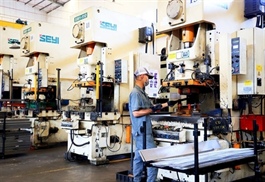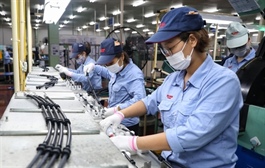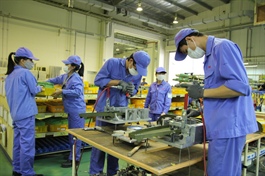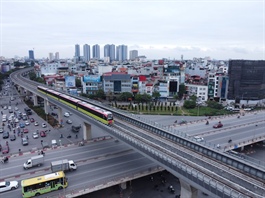Over 150 foreign investors explore investment opportunities in Vietnam
Over 150 foreign investors explore investment opportunities in Vietnam
VinaCapital Group, a leading investment management firm headquartered in Vietnam, held its 2023 Investor Conference in Ho Chi Minh City on Tuesday, which gathered more than 150 guests from around the world.

The year’s event welcomed a record number of participants since its first edition in 2005.
The conference also gathered a host of leaders of Vietnamese listed firms, such as Tran Hung Huy, board chairman at Asia Commercial Bank; Le Duy Diep, vice-chairman at Transimex; Phu Nhuan Jewelry general director Le Tri Thong and board member Tran Phuong Ngoc Thao.
Speaking at the event, Don Lam, CEO and founding partner of VinaCapital Group, said the recent Vietnam visit by U.S President Joe Biden has contributed to facilitating foreign investment inflows into Vietnam.
A number of foreign investors have shown growing interest in Vietnamese businesses operating in such fields as hi-tech, semiconductor production, renewable energy, education, and healthcare, he said.
Andy Ho, chief investment officer at VinaCapital Group, said he had the opportunity to meet with many investors in New York on the occasion of Vietnamese Prime Minister Pham Minh Chinh’s visit to the New York Stock Exchange and discovered that there is much room for further foreign capital to be poured into Vietnam.
Vietnam has become a more attractive investment destination, said Ho.
The country’s GDP growth is projected at 6-7 percent next year, equivalent to the past decade’s average figure.
During the January-September period this year, Vietnam posted a trade surplus of nearly US$21.7 billion.
The country is expected to see the number of orders placed by U.S. and European distributors rising during the rest of the year, thus boosting its export growth.
A number of people have recently voiced their concern over real estate issues in Vietnam and China, but Ho said that there are significant differences in the two markets.
In Vietnam, the real estate sector accounts for eight percent of the country’s GDP.
Meanwhile, the figure is 20 percent in China, which is home to many 'ghost cities,' or underoccupied cities.
Ho added that 25 percent of the Chinese housing stock is vacant, while that in Vietnam is less than five percent.
This year, Vietnam has received around $20-25 billion worth of capital from FDI firms. This demonstrates that foreign investors have confidence in the Vietnamese market, workforce, and infrastructure system.
The VinaCapital expert noted that Vietnamese employers need to upskill their employees, conduct more research and development activities, instead of serving as contract manufacturers, so as to woo more major investors such as Apple and Samsung.
Further, the Vietnamese government should adopt more measures to stabilize the macroeconomy, Ho said.
Regarding the stock market, it could be more volatile in the short term but remains an attractive investment channel for both domestic and foreign investors in the long run, Nguyen Hoai Thu, managing director and head of investment at VinaCapital, told the conference.























